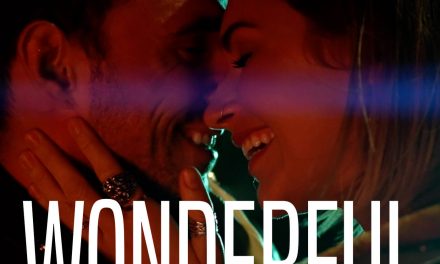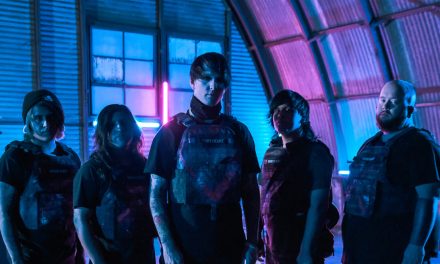
The Cinematic Reveries of Red Cain
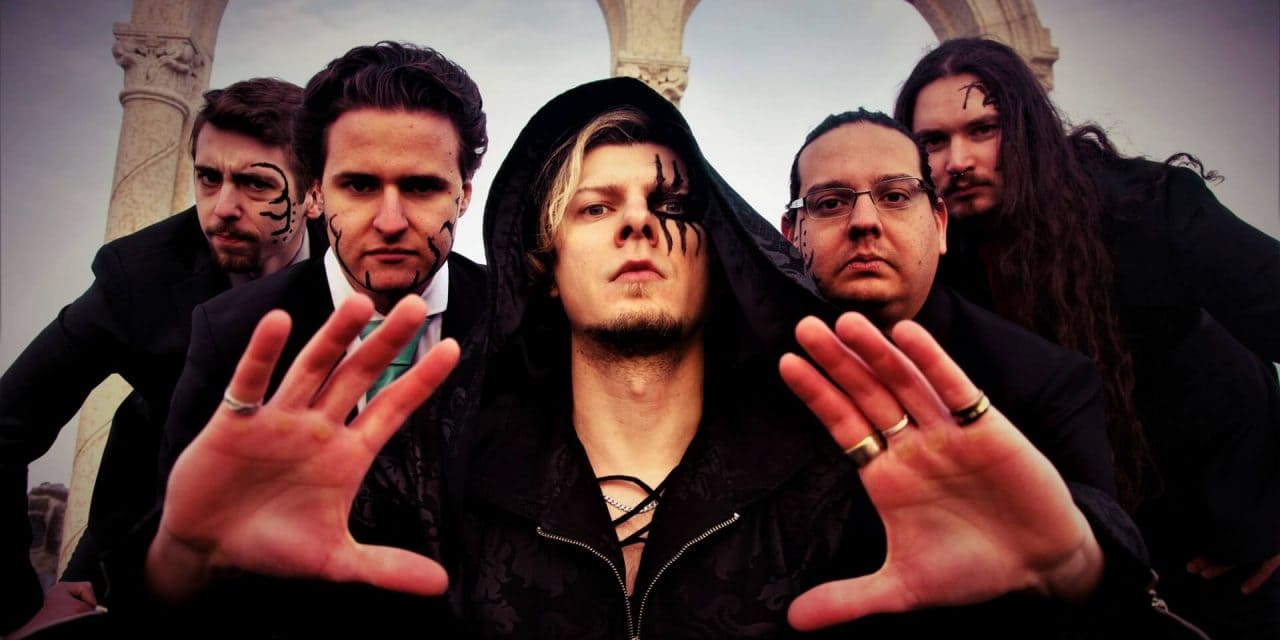
 The Cinematic Reveries of Red Cain
The Cinematic Reveries of Red Cain
Envision the cinematic aesthetics of gothic metal with the progressive intensity of Devin Townsend and Kamelot, and you are only beginning to imagine the auditory intrigue Red Cain has in store for you. Ambitious and thought provoking, the sonic reveries as presented by Red Cain will surely enrapture all types of adventurous music aficionados. Kindred: Act 1 is the name of the latest Red Cain exhibition, and is destined to enrapture the senses of all who encounter the vibrantly thunderous manifesto. Highwire Daze recently caught up with frontman Evgeniy Zayarny to find out a whole lot more about the enigmatic Red Cain experience. Read on…
Introduce yourself, tell me what you do in Red Cain, and how long the band has been together.
Evgeniy Zayarny, frontman. Formed in 2016 so 4.5 years.
Where is the band based out of and what is the local music scene like there?
Calgary, Canada. Smaller metal scene, but still very active with plenty of strong bands. Primarily a death metal city, but power/prog has had a huge surge of late.
How did you wind up signing with Sliptrick Records?
I had heard of them since two of my favourite Russian bands, Aria and SLOT are both signed with the label. Because of this, I decided to approach them directly – and the rest is history.
Is there any overall story or concept behind the Kindred: Act I album and title?
There is, of course. More will be revealed in the upcoming Kindred: Act II (later this year), which will tie the story together. We are following some elements of the ancient Slavic storytelling tradition practiced by the cult of the pagan god Veles. And thematically, the album deals with a clash of the modern and ancient human beliefs, and specifically elements like cult mentality and how it influences storytelling. There is a major mythological lean; in fact, we directly touch on a few myths – “ZERO” is a retelling of the myth of Osiris, which explores the theme of vampirism associated with the Egyptian god of death. Wing of the Crow is based on the Celtic myth of the Morrigan and Cuchulainn, a traditional Celtic hero figure. We are very interested in what lurks beneath the pristine and well-streamlined modern stories of humanity, and what dark truths have been forgotten and buried in between. I firmly believe, and there’s plenty of clear evidence, that the more lurid and animalistic elements of those stories have been unchanged for thousands of years, just buried deep within the human psyche. We try to awaken them, and ask the question – what story does the future of humanity tell?
There is also, of course a more direct concept to the album, which will become clear in Kindred: Act II. The “Kindred” refers not only to humanity and their gods as a whole, but also to two specific individuals, whose own story weaves within the tracks in the album.
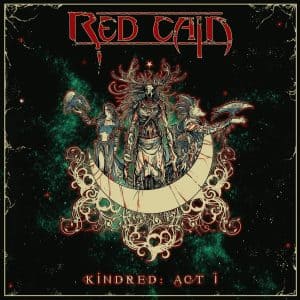
Interestingly, this song was inspired by the poem “Garden of Proserpine” by English poet Charles Algernon Swinburne. It’s been a favourite of mine for a number of years. “Juliet” is really told from the POV of a man seeking a beautiful death and being passed over for it at the last moment, causing him to reassess his situation. It is a bit of black humour commentary on the Slavic melancholy, but also ultimately a celebration of life despite the dark content. I’m also a big fan of gothic rock – Type O Negative, 69 Eyes, HIM, Lacrimas Profundere – and this track was my homage to those bands, down to the gothrock trope of using female names for song titles.
Who directed the recently released Juliet video and how much input did you have on it? What was the overall experience like?
The video was directed by my good friend Rik Zak, who is a noted filmmaker in the New York and Calgary scenes. This is our second music video with him and Jun Ren, who also played an absolutely key role in both the videos – “ZERO” and “Juliet” – who have now won us a combined 11 awards at various international film festivals. These guys really know what they are doing and we are lucky to have them.
We had a lot of input – the clip was a collaborative endeavour from the very beginning, and the three of us worked through the story concept and then the shots piece by piece until we were happy with the result. An example of the collaboration was merging the surface-level concept of travelling rock musicians and a femme fatale on the road with a deeper occult and mythological theme – Juliet can be guessed to be a personification of the Slavic goddess of death and rebirth Morana/Mara, down to some very specific symbolism in the video.
The filming was complicated – we compressed two weeks of shooting into two 18-hour days. The experience was fantastic, I would do it again in a heartbeat. The level of creativity getting some of the shots was great – we had to improvise down to the slightest details, such as generating the fog and lighting in the forest manually, just out of shot, and working with gasoline to keep the fires burning in pouring rain. The entire team did a brilliant job and I want to say thank you yet again to them all for this wonderful piece of cinema.
Select any other song from Kindred: Act I and what inspired the lyrics.
I haven’t talked about “All Is Violence” before, but it’s appropriate to world events. The lyrics are a commentary on the role and perception of violence throughout history – from its own point of view as an American Gods-esque personification. The track oscillates between a seeming glorification of violence – something we can’t ignore as a force in constructing human history and identity – and condemnation of it. Lines like:
“I rise on the egos of lesser men/On broken bones my throne stands”
And “I sit in the back of your limousine/I smile at you from your phone screen”
– are a clear indication of the pervasive nature of violence as a form of sustenance in our society, whereas “So all this is violence/And so we justify/These empty cradles/And these empty, empty eyes” is an objective result of its glorification. The track is meant to question the role of violence in our society and whether it is necessary to move us forward as a species. Everyone will have their own answer, but we wanted to pose the question to the listener.
What has it been like to release new music in the middle of a pandemic and so much social unrest in the world?
There are distractions, to be sure. But in some ways, music becomes more meaningful as a form of meditation, thought, and escape – so it is even more important to be a musician. I don’t necessarily think music should be used as a political tool, but some bands certainly have the opportunity to go that route. In a practical sense, the quarantine has allowed us to focus on studio work more, and engage with our fans in other meaningful ways than live shows, so it hasn’t been bad at all.
What could one expect from a live Red Cain show?
We try to make it very cinematic, really bring the audience into our world with the atmosphere, set structure, stage setup, outfits. We want it to be a fully immersive experience, a pagan storytelling ritual, of which the audience is a key part. There are some strong elements of this we are bringing to our next live shows in 2021. The pandemic has allowed us to revamp our live show for the better.
If Red Cain could open for any band either now or from the past, who would it be and why?
Roy Khan-era Kamelot. No other band has captured that immersive, powerful, nuanced storytelling element like they have, or brought the audience into it in such a powerful way. Roy Khan was and is one of my strongest inspirations as a vocalist and lyricist, so to have had that experience would be brilliant. But who knows, perhaps we can do the next best thing and open for Conception?
What’s up next for Red Cain?
We are 200% focused on Kindred: Act II. The album is about 70% finished, and we are tracking the last few songs. This album will be more aggressive, powerful, and unique than anything else we’ve ever created, and will complete the Kindred story. I’m extremely excited to debut the tracks and play them live next year. This is in many ways Red Cain 2.0, and our story continues strongly beyond that.
Any final words of wisdom?
Our experience as humans is built on storytelling. Recognize those stories, use them as weapons, use them to add meaning to your life and to make sense of the world. As musicians, our duty to each other and our fans is to keep those stories alive, mold them into new and interesting, meaningful forms – and there is always content to do so. So don’t let anything stop you.
(Interview by Ken Morton)
Red Cain on Facebook










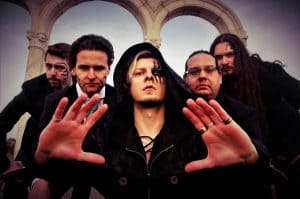 The Cinematic Reveries of Red Cain
The Cinematic Reveries of Red Cain
